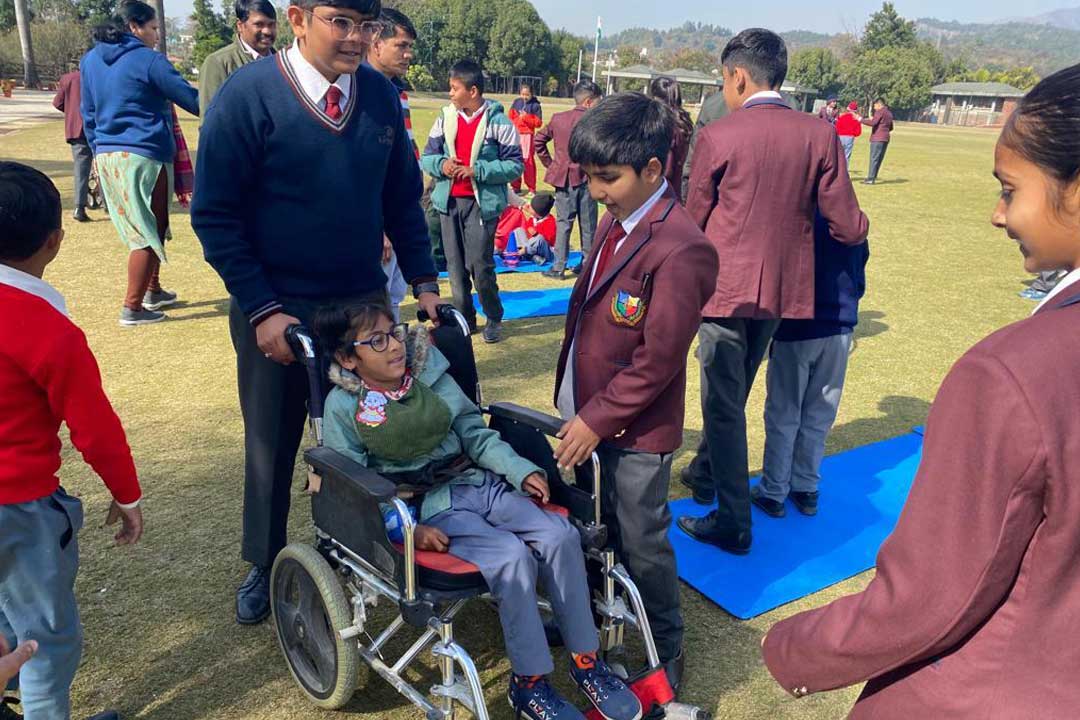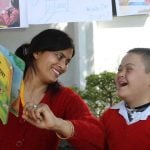Our friends –the ones who brighten our day, just because – are the family we choose, the siblings we never had. Friendships can be underrated but there’s a considerable amount of research to show how important childhood friendships are for successful adult relationships later. Preschool friendships are helpful in developing social and emotional skills, increasing a sense of belonging and decreasing stress. Children with good friends tend to have higher self-esteem, are better adjusted socially, more resilient, and less likely to be picked on by others. Friendlessness, on the other hand, has a negative impact on physical and psychological health all the way to adulthood.

Research shows that disabled children tend to be lonelier, more likely to be bullied and less likely to have friends than abled kids. Other children may reject them because of their unusual behaviors, communication difficulties, or inability to self-regulate, read social cues, understand humor or interpret body language. And yet, social inclusion through friendships is critical for disabled children to become valued and contributing members of society. For typically developing kids as well, having disabled friends teaches them to be more accepting of differences, have greater empathy, and develop a higher degree of patience.

The Latika Roy Foundation’s Wabi-Sabi team for inclusion organizes dosti visits with our children and kids in mainstream schools to give both disabled/ neurodivergent and abled/ neurotypical children opportunities to socialize with a diverse group of kids the same age as themselves.

Among the activities we conducted this month were a sensitization workshop for 45 students of Classes 4—6 at Kasiga School, Purkul, where we spoke about what it means to be disabled, the different kinds of physical, intellectual, learning and invisible disabilities and how they manifest, with stories, discussions and role-plays to get the children and staff thinking about diversity and inclusion in new ways. Having prepared the students thus, we took 19 of our own Karuna Vihar Special School (KVSS) students aged 7—14 with high support needs to Kasiga, where they received a rousing welcome. “The idea is to maximize interaction and exposure between both abled and disabled kids, and give them opportunities to socialize and make friends,” says Rupa Bishnoi, Director, Wabi-Sabi. “The Kasiga students wheeled our kids around, carried their backpacks, played soccer and cricket, went through tunnels and everyone had a blast. The Kasiga staff put a lot of effort into planning the event with games, singing, dancing and snacks for everyone. Since it happened to be Valentine’s Day, our kids even came back with gifts of pinwheels.”
Rupa was particularly appreciative of the efforts of the Junior School Principal, Ms Caroline, who has a Master’s degree in Learning Disabilities and Intellectual Disabilities from the National Institute of Mental Health (NIMH), Hyderabad. “She told us later that it was eye-opening to see how children they considered impatient and inattentive had blossomed into calm, patient youngsters around their new friends from KVSS,” Rupa recalled.


